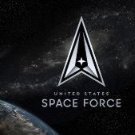Members Can Post Anonymously On This Site
US, Japan host first-ever Space Engagement Talks
-
Similar Topics
-
By Space Force
Avalon is the Southern Hemisphere’s largest airshow and aerospace and defense exposition. During the 2025 event, multiple industry exhibits, keynote speakers and engagements focused on current priorities and future development of space concerns.
View the full article
-
By NASA
NASA astronaut Christopher Williams poses for a portrait at NASA’s Johnson Space Center in Houston, Texas.Credit: NASA NASA astronaut Chris Williams will embark on his first mission to the International Space Station, serving as a flight engineer and Expedition 74 crew member.
Williams will launch aboard the Roscosmos Soyuz MS-28 spacecraft in November, accompanied by Roscosmos cosmonauts Sergey Kud-Sverchkov and Sergei Mikaev. After launching from the Baikonur Cosmodrome in Kazakhstan, the trio will spend approximately eight months aboard the orbiting laboratory.
During his expedition, Williams will conduct scientific investigations and technology demonstrations that help prepare humans for future space missions and benefit humanity.
Selected as a NASA astronaut in 2021, Williams graduated with the 23rd astronaut class in 2024. He began training for his first space station flight assignment immediately after completing initial astronaut candidate training.
Williams was born in New York City, and considers Potomac, Maryland, his hometown. He holds a bachelor’s degree in Physics from Stanford University in California and a doctorate in Physics from the Massachusetts Institute of Technology in Cambridge, where his research focused on astrophysics. Williams completed Medical Physics Residency training at Harvard Medical School in Boston. He was working as a clinical physicist and researcher at the Brigham and Women’s Hospital in Boston when he was selected as an astronaut.
For more than two decades, people have lived and worked continuously aboard the International Space Station, advancing scientific knowledge and making research breakthroughs not possible on Earth. The station is a critical testbed for NASA to understand and overcome the challenges of long-duration spaceflight and to expand commercial opportunities in low Earth orbit. As commercial companies focus on providing human space transportation services and destinations as part of a robust low Earth orbit economy, NASA is able to more fully focus its resources on deep space missions to the Moon and Mars.
Learn more about International Space Station research and operations at:
https://www.nasa.gov/station
-end-
Josh Finch / Claire O’Shea
Headquarters, Washington
202-358-1100
joshua.a.finch@nasa.gov / claire.a.o’shea@nasa.gov
Chelsey Ballarte
Johnson Space Center, Houston
281-483-5111
chelsey.n.ballarte@nasa.gov
Share
Details
Last Updated Apr 03, 2025 LocationNASA Headquarters Related Terms
Humans in Space International Space Station (ISS) ISS Research Johnson Space Center View the full article
-
By Space Force
Natalia Serna, daughter of Space Launch Delta 30’s senior enlisted leader Chief Master Sgt. Jay Harris and Maria Tapia, wins U.S. Space Force's Military Child of the Year.
View the full article
-
By NASA
2 min read
Preparations for Next Moonwalk Simulations Underway (and Underwater)
What are the dangers of going to space?
For human spaceflight, the first thing I think about is the astronauts actually strapping themselves to a rocket. And if that isn’t dangerous enough, once they launch and they’re out into space in deep exploration, we have to worry about radiation.
Radiation is coming at them from all directions. From the Sun, we have solar particles. We have galactic cosmic rays that are all over in the universe. And those cause damage to DNA. On Earth here, we use sunscreen to protect us from DNA damage. Our astronauts are protected from the shielding that’s around them in the space vehicles.
We also have to worry about microgravity. So what happens there? We see a lot of bone and muscle loss in our astronauts. And so to prevent this, we actually have the astronauts exercising for hours every day. And of course we don’t want to run out of food on a space exploration mission. So we want to make sure that we have everything that the astronauts need to take with them to make sure that we can sustain them.
There are many risks associated with human space exploration. NASA has been planning for these missions to make our astronauts return home safely.
[END VIDEO TRANSCRIPT]
Full Episode List
Full YouTube Playlist
Share
Details
Last Updated Apr 02, 2025 Related Terms
General Biological & Physical Sciences Human Research Program International Space Station (ISS) Science Mission Directorate Explore More
3 min read NASA Continues Support for Private Astronaut Missions to Space Station
Article 3 hours ago 2 min read Citizen Scientists Use NASA Open Science Data to Research Life in Space
How can life thrive in deep space? The Open Science Data Repository Analysis Working Groups invite…
Article 11 hours ago 2 min read NASA Receives 10 Nominations for the 29th Annual Webby Awards
Article 1 day ago Keep Exploring Discover Related Topics
Missions
Humans in Space
Climate Change
Solar System
View the full article
-
-
Check out these Videos



Recommended Posts
Join the conversation
You can post now and register later. If you have an account, sign in now to post with your account.
Note: Your post will require moderator approval before it will be visible.